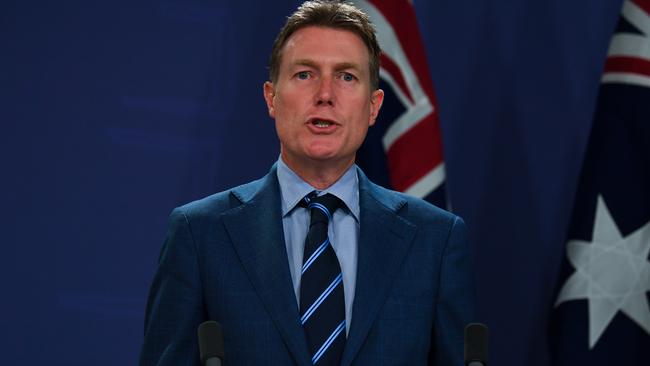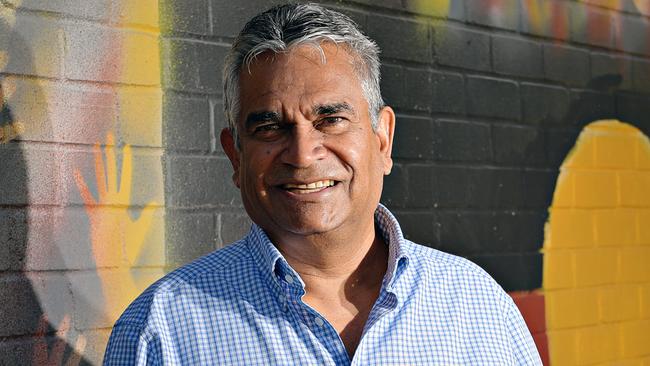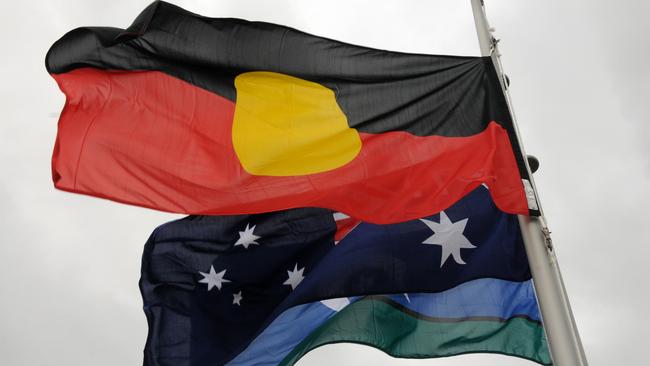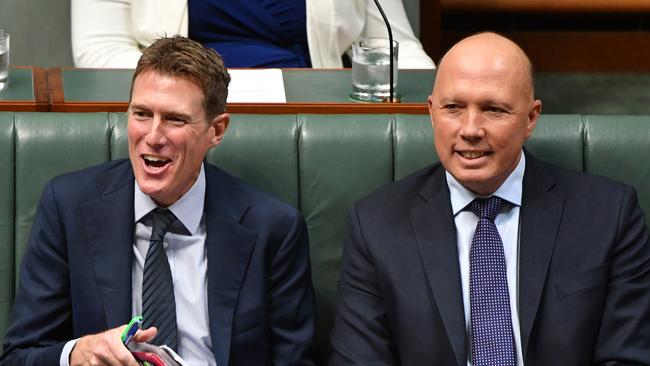Our High Court appointments have never mattered more
There were always going to be those who exploited the loophole introduced by the High Court last month, but the bigger question is what it means for the future of our judges, writes Peta Credlin.
Rendezview
Don't miss out on the headlines from Rendezview. Followed categories will be added to My News.
When the High Court decision was first brought down four weeks back, that aboriginal people could not be “aliens” subject to immigration law, politically correct commentators said that it would make no practical difference.
As one of them, Professor Megan Davis, opined: “there’s not too many blackfellas who are born overseas and need a visa to come back home”.
Well, it didn’t take long to discover just how many foreign-born criminals could claim indigenous ancestry if it might allow them to stay in Australia.
This week, it was revealed that 23 – yes 23 – non-citizens awaiting deportation for serious crimes, are now seeking to stay here on the grounds that they’re indigenous, even though they weren’t born here and have never become Australian citizens.
Our citizenship legislation, relying on section 51 of the constitution, gives the minister power to deport “aliens”, a specific term for people not considered to have met the requirements of citizenship, if they have committed serious crimes in Australia. For the purposes of deportation, we’re talking about violence, drug-running, rape, murder and sex crimes against children.
But in the recent case of Love and Thoms, by the barest of majorities, the High Court held that anyone legitimately identifying as indigenous could not be deported because such a person was incapable of being an “alien” under the Australian constitution.

Of course, this is not what the constitution actually says. It’s what four out of seven judges say the constitution must have meant – to steal a line from the movie The Castle, it’s the constitutional “vibe” if you like.
Already a number of senior aboriginal leaders have expressed concern about the precedent set by this decision. Dr Stephen Hagan, a traditional owner, veteran activist and author said that he feared the decision would be exploited by criminals exploiting deportation. The test upheld by the High Court to assess claims of aboriginality also came under scrutiny with another indigenous leader, Anne Weldon, saying she had seen widespread fraud by people claiming to be indigenous so that they could access Aboriginal-identified government jobs, university scholarships or public housing.
At a time when Kevin Rudd’s annual Closing the Gap report shows little improvement in key statistics for aboriginal Australians, over a decade on from its inception, you’ve got to ask who is getting the billions and billions we spend in the indigenous policy area and will this latest court judgment open up even more risk of fraud and misuse?
At present the test to meet claims of aboriginality, and reaffirmed in the February High Court decision, comes from the earlier 1992 Mabo judgment. It requires a claimant to point to an indigenous person in their family tree, self-identify as aboriginal and be accepted in some way by the Aboriginal community. In the immediate case, Love claimed aboriginality via paternal great-grandparents, and Thoms through a maternal grandmother.

Dr Hagan says this three-part test is being abused to support fraudulent claims and, as reported in the Australian newspaper last week, “as useful as an ashtray on a motorbike if it does not specify links to an apical ancestor.” Apical ancestor meaning a tribe’s common ancestor at the apex of the aboriginal group from whom descent is traced.
But who is surprised here?
Once the High Court had blasted a hole in our citizenship legislation there were always going to be individuals who sought to exploit this loophole; why wouldn’t there be – after all, this is the ticket to live here in Australia with all the rights of a citizen for people who weren’t born here and who never took up citizenship when they had the chance, before they committed serious crimes.
Yet this is precisely what happens when courts come up with novel interpretations of the Constitution that play havoc with existing law. If the settled law – that parliament can legislate for the deportation of aliens – can be overturned by a High Court decision that indigenous people can’t be aliens, even if they weren’t born here and haven’t become citizens, on the basis of distant descent, then there’s little restraint on the creation of further special rights for indigenous people; or indeed for anyone, who arouses the sympathy of enough judges, on the High Court bench.

Now, it may be possible for amendments to substitute the term “non-citizens” for “aliens”, as flagged by Home Affairs Minister Peter Dutton – but that assumes that such legislation would not only pass the senate, but also survive the inevitable High Court challenge.
The other way to make change here is, of course a referendum to change the constitution, to make it crystal-clear that the parliament can legislate to deport non-citizens, regardless of race; but this would likely be very divisive, even though the High Court’s decision, that race trumps the law of the land, is exactly that.
In America, appointments to be bench can be incredibly contentious precisely because there’s a long tradition of judicial invention: namely the creation of new rights that the constitutional founders would never have dreamt of. This tradition of judicial activism risks becoming entrenched, here in Australia’s courtrooms too.
It’s noteworthy that three of the four judges in the High Court majority were appointed by the current Coalition government. In each instance, the most senior ranks of the government were assured that all the judges-to-be were “black letter” lawyers who would abide by our former tradition of strict interpretation; meaning Australian courts would strive to give effect to the intention of parliament, elected by the people, rather than invent their own version of what the law, really should be.

And I was there at the time when these assurances were made. But pretty obviously, either cabinet was misinformed; or on arriving at the High Court, the judges to reinvent themselves as activists, and in doing so undermine the proper role of the judiciary.
Under the separation of powers, a fundamental doctrine of constitutional law in this country, the judiciary, the parliament and the executive must be kept separate. Yet in her powerful dissenting judgment in this case in February, the High Court Chief Justice, Susan Kiefel, declared it would be wrong of the court to remake the law on who might be an ‘alien’ in the Citizenship Act. “Such an approach would involve matters of values and policy,” she declared, “and would usurp the role of the parliament.”
The Chief Justice’s warning is about as serious as it gets.
Which makes who will fill the upcoming two High Court vacancies more important than ever.
The last thing we should want now are politicised judges on a political court. It will be up to Christian Porter to reassure Scott Morrison’s Cabinet that his appointments, unlike his predecessor’s, will respect the pre-eminent role of the democratically elected parliament in determining what is the actual law of the land.
Originally published as Our High Court appointments have never mattered more



